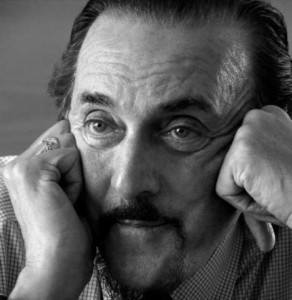
| Born: March 23, 1933 in New York City, NY |
| Nationality: American |
| Fields: Psychology |
| Famous For: Stanford Prison Study |
| Awards: American Psychological Association Gold Medal for Lifetime Achievement in the Science of Psychology (2012), Dagmar and Václav Havel Foundation Vision 97 Award (2005) |
Philip George Zimbardo is a popular contemporary social psychologist known for his 1971 Stanford Prison Study. He is a professor emeritus at Stanford University and the president of the Heroic Imagination project. Philip has also authored several psychological books and college psychology textbooks including The Lucifer Effect, The Time Cure and The Time Paradox.
Early Life
Philip Zimbardo was born on March 23, 1933, in New York City, into a family of immigrants from Sicily. He attended Brooklyn College and graduated in 1954 with a B.A. triple major in sociology, anthropology, and psychology. He later attended Yale University and completed his M.A. in 1955 and a Ph.D. in psychology in 1959.
From 1959 to 1960, Philip taught at Yale after which he moved to New York University where he became a psychology professor until 1967. He then moved to Columbia University where he taught for a year and moved to Stanford University where he stayed until he retired.
Zimbardo’s Career
Philip Zimbardo’s big break came in 1971 when he conducted the Stanford Prison study in the Stanford University psychology department’s basement. In the study, 24 male university students were randomly assigned to act as “prisoners” or “guards” in a mock prison. The Stanford Prison experiment was designed to determine human behavior when one group was given authority over another group.
Although the experiment was scheduled to last for two weeks, it only lasted for six days as it was terminated due to the extreme reactions and behaviors displayed by the participants. The “guards” became cruel and sadistic towards the prisoners and this made the prisoners hopeless and depressed. The “prisoners” also started developing behaviors that mimicked the behaviors of real prisoners, such as rebellion, rioting, and rage.
Since the famous Stanford prison Study, Zimbardo continued conducting studies on an array of psychological topics including heroism, cult behavior, mind control and shyness. He actually developed the Stanford Shyness Clinic, 1977, which was dedicated to helping people overcome shyness in social settings. The clinic was later renamed Shyness Clinic after it was relocated from Stanford campus.
Philip has also authored and co-authored numerous psychology books, some of which have been widely used in psychology courses in the university. Some people recognize Philip as the host of Discovering Psychology, a video series which aired on PBS and is often used as learning instruments in high school and college psychology classes.
Philip Zimbardo was elected president of the American Psychological Association. He retired from Stanford University in 2003 after teaching for more than 50 years. He gave his last lecture entitled Exploring Human Nature, on March 7, 2007. Today, Philip works as the president and director of the Heroic Imagination Project, an organization he founded in a bid to promote education, research and media initiatives, tailored to urge ordinary people to act as agents of social change and heroes.
Contributions to Psychology
Zimbardo’s Stanford Prison Study remains one of the most important psychological studies in human behavior. It enlightens psychology students on how situational forces influence human behavior. In fact, this study became a huge topic of interest when the reports of Abu Ghraib prisoner abuses were publicized.